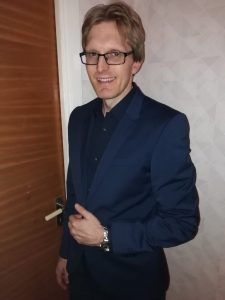When it comes to looking back on the history of black people, it is important to give a nuanced picture of all that has happened up to today. You have of course the Civil Rights Act, slavery, Martin Luther King and Obama being elected to be the President of the United States of America. There is black suffering, racism, and the tendency towards a lack of education among teachers when it comes to this subject. It is a big and important part of history, both in the USA and the rest of the world. To give teachers the tools to teach about black history, there needs to be more training, knowledge, and a deeper understanding around this topic. There are studies that show that there is a general fear and discomfort when it comes to speaking about racism and differences between different cultures, which probably leads to silence instead of a clear voice.
Even though history teachers claim that their education bears the stamp of black history, it has been shown that the occasions dedicated to this subject are many times relatively limited. There is a risk the black students will view themselves as secondary in history and in the case when black history is raised it is viewed from the white people’s perspective. More representation of black history has a positive impact on black students’ commitment when it comes to history as a whole. I think that it is important to show different peoples’ lives through history. This means showing the heroes as well as the life of ordinary people, children’s life, men and female perspective.
Let them all take place and take an important role in history. Sometimes it can be easier to identify ourselves with people that live a life closer to what we experience. Here in Sweden, the European perspective on colonialism and imperialism that affected black people in Africa are more common in history books, but often lacks the African perspective connected to these time periods and events.
The question is how we can be sure to find different ways of viewing the past and at the same time engage people of today. I think it is a matter of giving a big platter of facts to choose from and discuss what has happened during the years. Do we dare to actually discuss how life is today? Are there still obstacles in the society for people of black origin and what can be done to make things better? When we understand that through history comes a deeper understanding of our own life, that is when we truly put value on what people have done before us, without the good people and their sacrifice and struggle we would not be in the situation that we are now.
When Rosa Parks had enough of oppression and felt that she needed to take a stand for black people and herself, a seemingly small act made a big difference. 1 December 1955 she refused to stand up and move to give up her seat in the bus to white passengers, she was arrested for her act and had to spend the night in jail, but the protest around the country grew like fire and a mass movement was borned. There are so many good examples of strong independent black people around us in today’s society, entrepreneurs, artists, politicians, militaries serving their country, fire fighters, doctors, police, scientists and other hard working individuals that make our lives better. There is no shortage of modern day heroes.
Take time to look around and acknowledge the role that they play in our everyday life, they are there on stage or sometimes playing an important role behind the scene. Why not take the chance to immerse ourselves in black culture and history a little extra this month. Read a little, talk, eat and have fun celebrating black history.
There are still things that need to be done and the invisible torch is handed over to our hands and now it is up to us to make this world a better place. What can you do? Sometimes a small act of goodness goes a long way, we may look at ourselves as a small player, but if everyone make a little something, it leads to a big change and who knows maybe you are the next hero and even if you will not be famous for it, there is a chance that you can play the role of the hero in your own life and is that not good enough? The good acts that are made when no one is watching might be best of them all, when we truly do something for someone else without asking for anything in return.

Daniel Antonsson is a 43 year old Autistic man living in Sweden with his Venezuelan girlfriend and four year old daughter. He has always enjoyed writing about different subjects and being able to publish for the Art of Autism make him feel truly blessed.








Thank you for taking on this subject in an inviting way. We all need to learn more about each other and appreciate each individual. Our culture helps shape us. Let’s embrace one another. Let’s make a personal impact. I agree that it will make a difference!